International Symposium
All Power to the People!
With Stephanie Archangel, Jared Ball, Kathleen Cleaver, Jessica De Abreu, Emory Douglas, Juan Pablo Fajardo, Rosalba Icaza Garza, Baruch Gottlieb, Carl Haarnack, Alden Kimbrough, Firoze Manji, Seada Nourhussen, JeanPaul Paula, Valika Smeulders, Simone Zeefuik and The Black Archives
28.11.2018 — 29.11.2018All Power to the People!
With Stephanie Archangel, Jared Ball, Kathleen Cleaver, Jessica De Abreu, Emory Douglas, Juan Pablo Fajardo, Rosalba Icaza Garza, Baruch Gottlieb, Carl Haarnack, Alden Kimbrough, Firoze Manji, Seada Nourhussen, JeanPaul Paula, Valika Smeulders, Simone Zeefuik and The Black Archives
International Symposium
All Power to the People!
With Stephanie Archangel, Jared Ball, Kathleen Cleaver, Jessica De Abreu, Emory Douglas, Juan Pablo Fajardo, Rosalba Icaza Garza, Baruch Gottlieb, Carl Haarnack, Alden Kimbrough, Firoze Manji, Seada Nourhussen, JeanPaul Paula, Valika Smeulders, Simone Zeefuik and The Black Archives
28.11.2018 — 29.11.2018All Power to the People!
With Stephanie Archangel, Jared Ball, Kathleen Cleaver, Jessica De Abreu, Emory Douglas, Juan Pablo Fajardo, Rosalba Icaza Garza, Baruch Gottlieb, Carl Haarnack, Alden Kimbrough, Firoze Manji, Seada Nourhussen, JeanPaul Paula, Valika Smeulders, Simone Zeefuik and The Black Archives
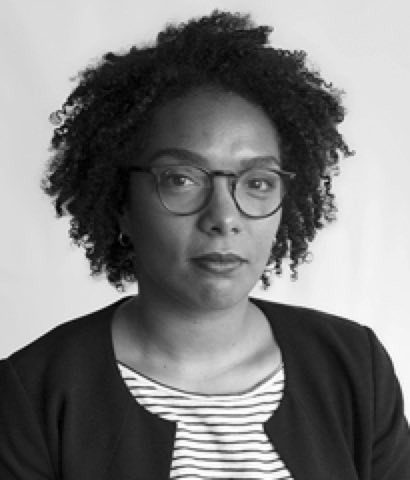
Stephanie Archangel studied sociology at the University of Amsterdam and has been working as a junior curator for the Rijksmuseum’s History department since November 2016. Her previous positions include project manager for the Jewish Historical Museum, the 4 and 5 May committee in Amsterdam, the Rembrandthuis Museum and the Amsterdam Museum. Stephanie is involved in a number of projects at the Rijksmuseum. She makes important contributions to our efforts to use our collections to showcase contemporary social issues. In addition to projects such as ‘Document Nederland’ and de ‘Nacht van de Geschiedenis(The Night of History)’, she is also working on a terminology project. The purpose of this project is for the Rijksmuseum to critically review the current titles and descriptions of the objects in its collection. Stephanie is working with senior curator Gijs van der Ham on our exhibition about the Eighty Years’ War, which will open in the spring of 2018.
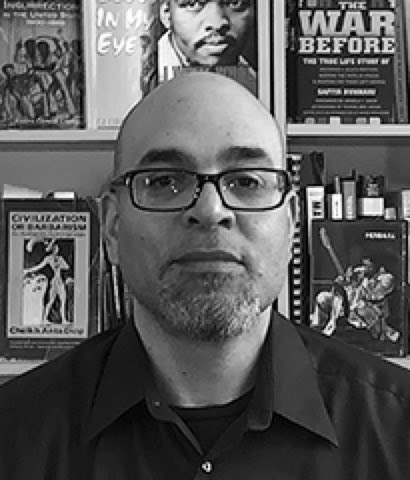
Jared A. Ball is a father and husband. After that, he is a Research Professor of Communication Studies in the Institute for Urban Research at Morgan State University in Baltimore, MD. and is curator of imixwhatilike.org, an online hub of multimedia dedicated to the philosophies of emancipatory journalism and revolutionary beat reporting. Ball has worked for many years in alternative media spaces as a journalist and broadcaster and in critiquing dominant ones as a scholar and media-maker. His work now has an emphasis on understanding the impact of propaganda on histories specifically related to liberation struggles in the United States.
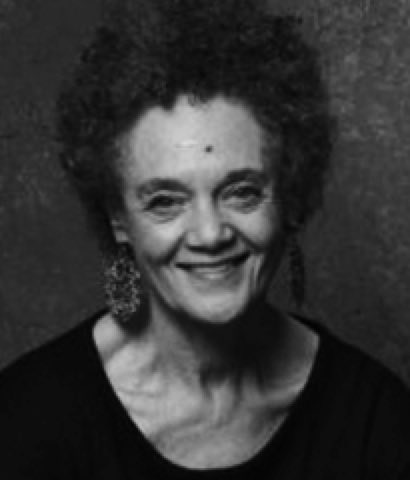
Kathleen Neal Cleaver was born May 13, 1945 in Dallas, Texas. She joined the Student Nonviolent Coordinator Committee (SNCC) in New York in 1966, and moved to the organization's headquarters in Atlanta in January 1967. She became SNCC's campus program secretary. While organizing a Black Students Conference in Nashville in Spring1967, she met Eldridge Cleaver. Kathleen Cleaver was the first woman to be accepted on the Central Committee of the Black Panther Party. She spoke throughout the country on issues concerning the Party, including the ‘Free Huey’ campaign which she helped organize in 1968. Also in 1968, she campaigned, unsuccessfully, for the state Assembly in the California Bay Area on the Peace and Freedom Party ticket. When Eldridge Cleaver fled the country from a federal warrant for his arrest in 1968, she joined him in exile in Algeria the following year. In Algeria they established the International branch of the Black Panther Party, returned from exile in 1975 and divorced in 1987. Kathleen Cleaver returned to academia in 1981 on a full scholarship from Yale University, graduating summa cum laude with a B.A. in History and subsequently getting a law degree from Yale Law School. Currently, Cleaver is a senior lecturer at Emory University School of Law as an expert in African-American history. Cleaver has brought her unique perspective on critical issues of race, gender and class to a wider audience, while maintaining her commitment to social and economic justice.

Jessica de Abreu is an anthropologist, and co-founder of The Black Archives, which is one of the first historical archives in the Netherlands that focuses on Black Dutch history, and beyond. She is also a board member at New Urban Collective, a network for students and young professionals from various cultural backgrounds. Her work focuses on the field of the African Diaspora, anti-racism and intersectionality.
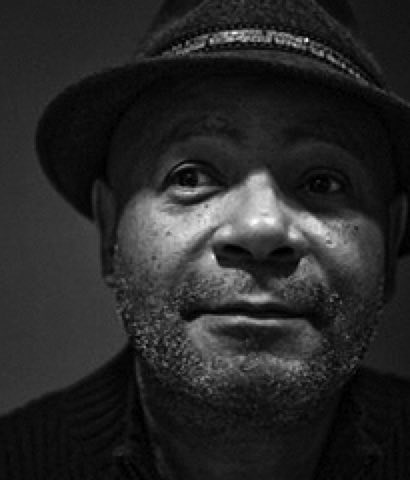
Emory Douglas was born in 1943 in Grand Rapids, Michigan, and has been a resident of the Bay Area since 1951. He became the Minister of Culture for the Black Panther Party in 1967, a role he held until the party disbanded in the early 1980s. During the Party’s active years he served as the art director overseeing the design and layout of the Black Panther, the Party’s weekly newspaper. His work played no small part in propagating its combative criticisms of the U.S. government, as well as any other institutions or persons the party viewed as perpetuators of racism, police brutality, poverty and global imperialism. As the art director, designer, and main illustrator for The Black Panther newspaper, Douglas created images that became icons, reflecting the result of tensions and social unrest of the late sixties and early seventies. Immersed in a very complex space between art and politics, communication and propaganda, social activism and the portrayal of a society in a certain time and space, his practice can be understood as a collaborative body of work, in which the context, as well as the participation of a social movement and its representatives, constructed one of the most interesting imageries of protest and a new aesthetic of politics.

Juan Pablo Fajardo was born in 1974 in Bogotá, is cofounder of La Silueta, an independent publishing house and artist run studio/space in Bogotá. AGI member 2017.With background in art practice his main activities have been related toresearch and design, for print and exhibitions, publishing and experimenting with publications since 1997. In 2002 cofounded La Silueta ediciones, an independent publishing house and experimental platform where artist projects, research on colombian visual culture and exhibitions are developed. There have been special interest in research on social photographers, graphic design and relations to printed material and distribution of content. Exhibitions and publications by La Silueta include the work of Sergio Trujillo Magnenat, Nereo López, Paul Beer, and Jorge Silva, the last one co published with the Archive of Modern Conflict. Fajardo currently works conducting research on the history of colombian graphic design, an exhibition and publication that will be presented by the Central Bank of Colombia in 2020.Publications by La Silueta are included at special collections at Stanford and Princeton Universities and are part of art book collections of Moma and São Paulo Museum of Modern Art.

Rosalba Icaza Garza is Associate Professor in Global Politics, Gender and Diversity at the Institute of Social Studies, Erasmus University Rotterdam and Chair of the Diversity and Inclusion Team. She has been involved in collaborative research initiatives dealing with the global governance of knowledge making and the practices of epistemic dissent and resistance that contest its numerous institutional expressions (e.g. Global and Regional governance of trade, NGOization of development agendas, global governance of sexual and reproductive health, etc.). She is currently part of the Transnational Network Other Knowledges. Understanding social resistance, and particularly indigenous and working-class women individual and collective resistance to interrelated forms of transnational/global oppressions has been at the core of her thinking and teaching. She is interested in the application of action-research methodologies in her teaching and research and committed to facilitating spaces for mutual learning between practitioners and academics. Third-world and de-colonial feminist theories, modernity/coloniality/decoloniality collective thinking and theories on social resistance to global and regional governance have captured her attention. Rosalba holds a PhD and MA in Politics and International Studies from the University of Warwick and a BA in International Relations from Universidad Iberoamericana in Mexico City.
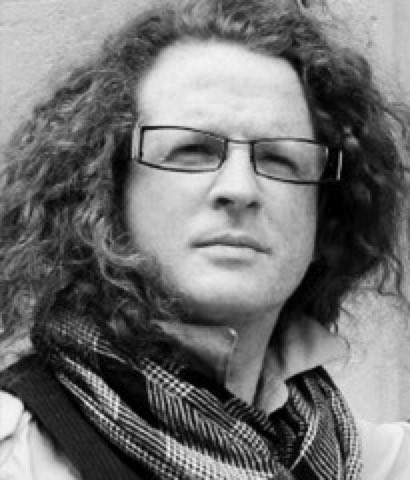
Baruch Gottlieb, trained as a filmmaker at Concordia University Montreal, has a doctorate in digital aesthetics from the University of Arts Berlin. He is active member of the Telekommunisten, Arts & Economic Group and laboratoire de déberlinisation artist collectives. Author of ‘Gratitude for Technology’ (ATROPOS 2009), ‘A Political Economy of the Smallest Things’ (ATROPOS 2016), and Digital Materialism (Emerald 2018) he currently lectures in philosophy of digital art at the University of Arts Berlin and in cybernetic aesthetics at the TU Cottbus. Gottlieb also works as a curator of exhibition, convenor of symposia and large scale event and festival director. He is curator of the touring exhibition series ‘Flusser & the Arts’ based on the philosophical writings of Vilém Flusser, which has been presented at ZKM, Karlsruhe, AdK Berlin, West Den Haag and GAMU Prague and ’FEEDBACK: Marshall McLuhan and the Arts’ which has been presented in Den Haag, Leipzig and Berlin. He is also founder and director with Ji Yoon Yang of SFX Seoul Sound Art Festival which will have its 11th anniversary in 2018.
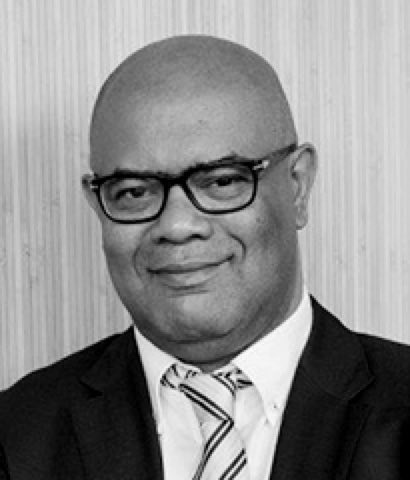
Carl Haarnack (Paramaribo, 1963) studied Political Science at the University of Amsterdam. He is the founder of Buku - Bibliotheca Surinamica, a collection of rare books and prints about Suriname. Haarnack regularly writes for the magazine Parbode and his website www.buku.nl about the history of Suriname, colonial heritage and old books. He contributed to the catalog of the exhibition 'Black is beautiful. From Rubens to Dumas' (Nieuwe Kerk, Amsterdam, 2008). In 2013 he was co-curator of the Slavernij Verbeeld exhibition (Special Collections, University of Amsterdam). In 2017 he published 'Nachrichten von Surinam': Representations of a Dutch Colony in German Travel Literature '(in: Travel Writing in Dutch and German, 1790-1930, Routledge, 2017). In 2018 he published an essay 'Buku Bibliotheca Surinamica or the art of collecting' (in: We Love Books, Johanna Kessler, 2018).
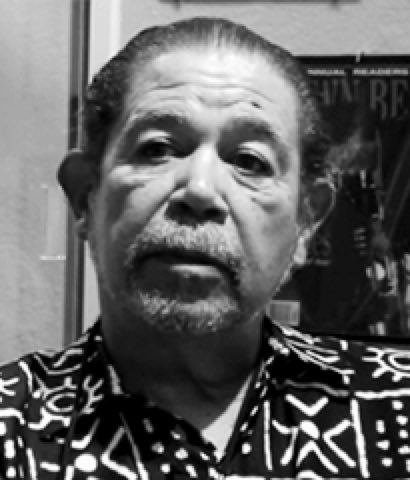
The Kimbrough family African American Historical Collections had its genesis in the 1930’s when Dr Jack Kimbrough, an early Black activist in San Diego, California with a thirst for knowledge of Black History and Culture, developed a passionate and lifelong interest in collecting first editions of Black-American fiction and Black slave narratives. Later, in 1947, he became president of the NAACP in San Diego, California, organizing sit-ins to desegregate hotels and restaurants throughout the city. During this time, he specialized in collecting rare African art, lecturing and exhibiting his collection throughout Southern California. Alden Kimbrough, along with his sisters Mary and Jackie Kimbrough have maintained the family’s continuing interest in historical exhibitions that document Black struggles against racism, sexism, and imperialism. Today, they continue to facilitate and organize exhibitions that showcase Black historical memorabilia, rare books, Black liberation art posters, early Black movie posters, with major exhibitions focusing on Malcolm X, African Liberation Movements and The Black Panther Party, including one with a specific focus on the great work of the Panther’s prolific and original artist and Minister of Culture, Emory Douglas. They are thrilled to have this opportunity, through their love of preserving and archiving this essential and timely revolutionary artwork, to share this collection for the appreciation of a wider audience.
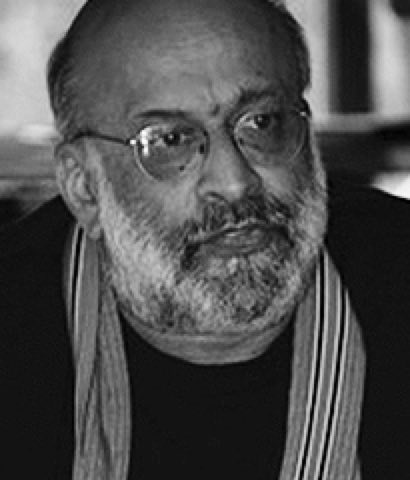
Firoze Manji is a Kenyan-born author, activist, editor and publisher. He is the founder and former editor of Pambazuka News, an online news magazine. He was the former Africa director for Amnesty International and former CEO of the Aga Khan Foundation. He has published widely on health, social policy, human rights and political sciences, and pan-Africanism and has authored and edited a wide range of books on social justice in Africa, including on women’s rights, trade justice, on China’s role in Africa and on the recent uprisings in Africa. He is co-editor, with Sokari Ekine, of African Awakenings: The Emerging Revolutions; co-editor with Bill Fletcher Jr. of Claim No Easy Victories: The Legacy of Amilcar Cabral, and project-managed the publication of Silence Would Be Treason: Last Writings of Ken Saro-Wiwa.
Seada Nourhussen (TBC)

JeanPaul Paula (born 1986, Willemstad) works as a stylist, creative director, judge on Hollands next top model and activist. He has build up a big portfolio of work by working together with a very diverse group of people and brands. e.g. Jean-Baptise Mondino, Fka Twigs, Lacoste and Nike. In addition to his work in fashion, jeanpaul is fiersly committed to both the Black Lives Matter and Trans Lives Matter movements.
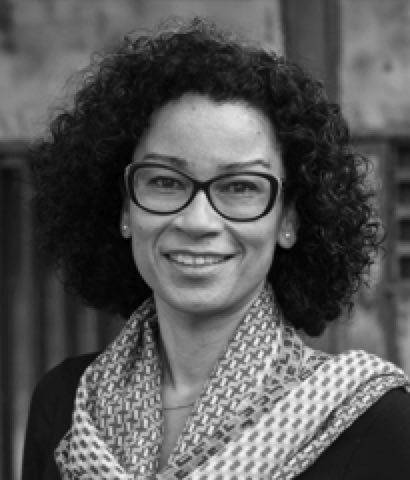
Valika Smeulders, PhD, specializes in social diversity, heritage, museums and the slavery past. As the owner of Pasado Presente she works with heritage institutions, universities and community organizations on new heritage presentations and reaching new audiences in The Hague. As a researcher for the Royal Netherlands Institute of South East Asian and Caribbean Studies she researches the Dutch Caribbean diaspora in the Netherlands and new definitions of heritage. She is a curator for the exhibition on slavery at the Rijksmuseum Amsterdam in 2020.
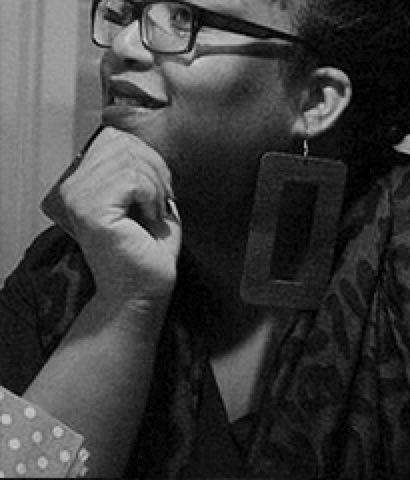
Simone Zeefuik is an Amsterdam based writer and organizer whose work centres around on representation and inclusivity. With her articles and the event she organizes or co-hosts, she focuses on Africentred perspectives, (de)colonial vocabularies, museums, (digital) archives and the illegalized members of the Afro-Dutch communities. She organizes film screenings and panel discussions at Amsterdam's Bijlmer Parktheater and views documentaries for IDFA (International Documentary Filmfestival Amsterdam). As a lecturer and workshop host she works with universities, colleges and museums in the Netherlands as well as Belgium. Her interests are film, theatre, literature plus pan-Africanist and decolonial resistance movements. Nerd-wise, biographical films have a special place in her expertise.
The Black Archives
The Black Archives is a unique historical archive for inspiring conversations, activities and literature from Black and other perspectives that are often overlooked elsewhere. It documents the history of black emancipation movements and individuals in the Netherlands. The archive consists of unique book collections, archives and artifacts that are the legacy of Black Dutch writers and scientists. The more than 5000 books in the collections focus on racism and race issues, slavery and (the) colonization, gender and feminism, social sciences and development, Suriname, the Netherlands Antilles, South America, Africa and more. As a result, The Black Archives provides book collections and literature which are not or little discussed in schools and within universities. Based on the archives exhibitions, debates, dialogues and other activities are organized to make hidden histories more visible. In October 2018 The Black Archives won the Amsterdam Art Prize (category Stimuleringsprijs). In the same month a new pop-up exhibition ‘Onze*Tori’ was launched, they aim to collect hidden stories of Surinamese people in the Netherlands.

 previous
previous next
next